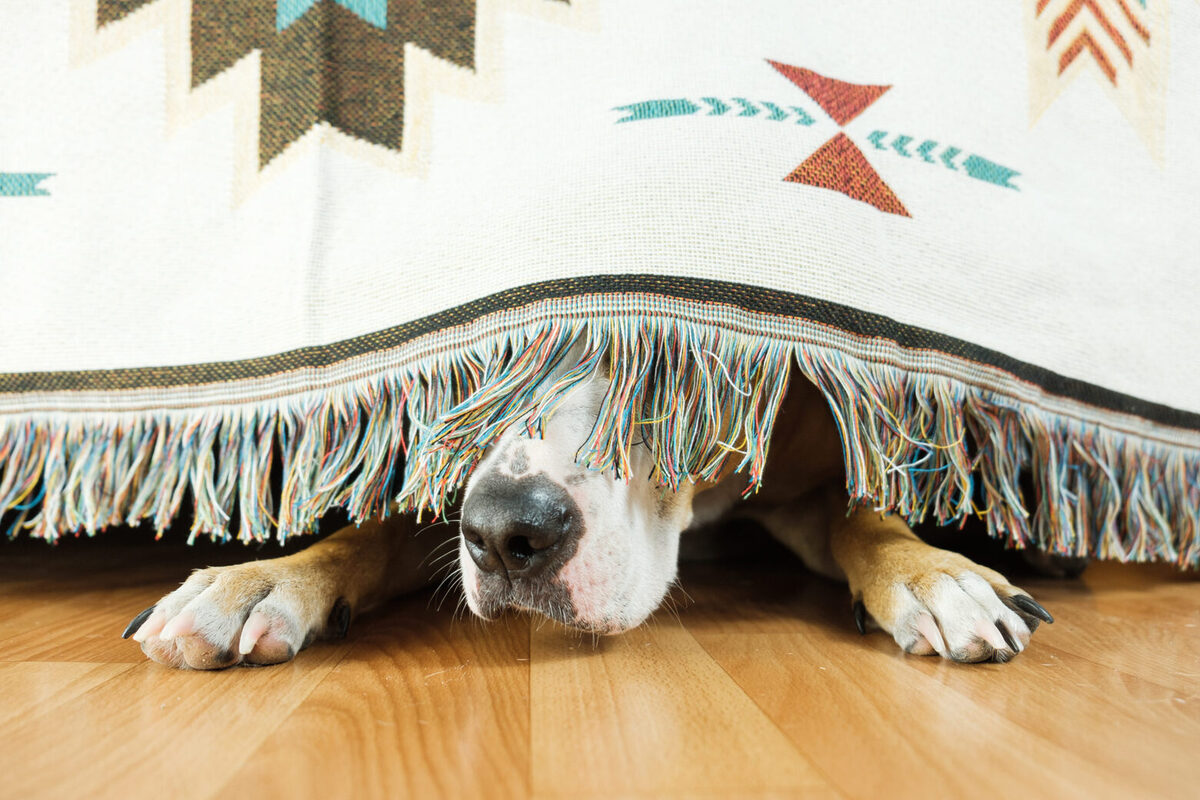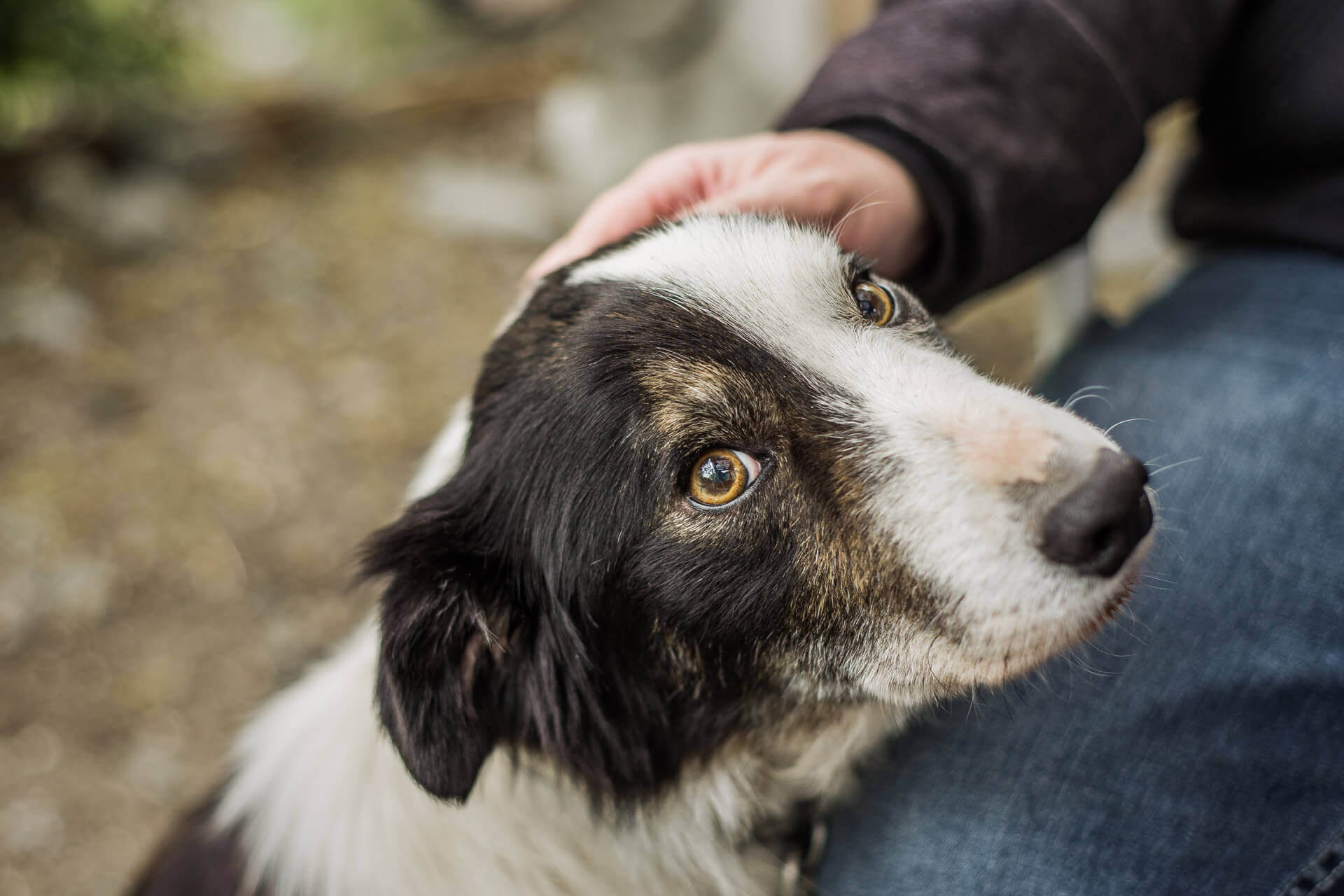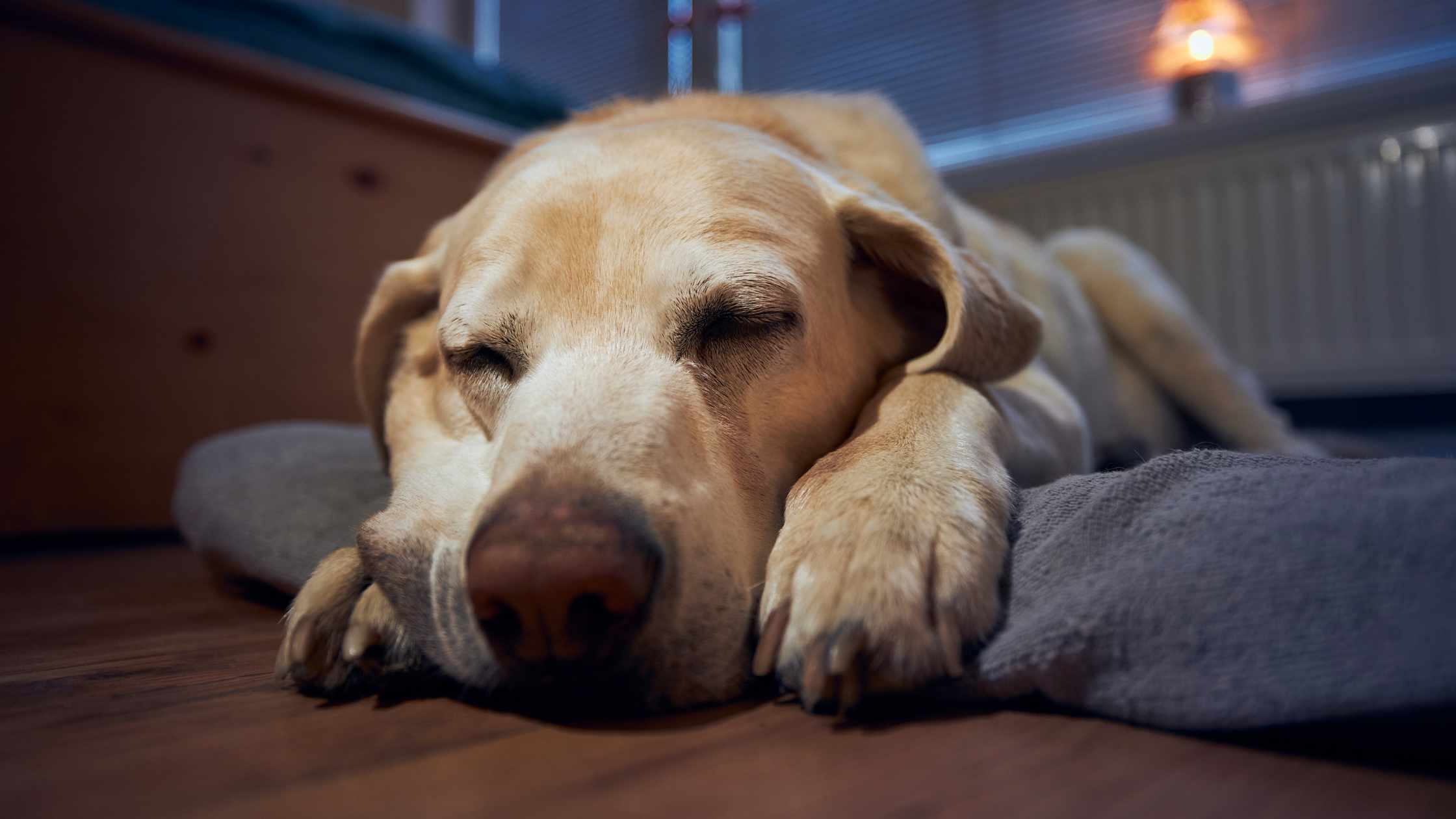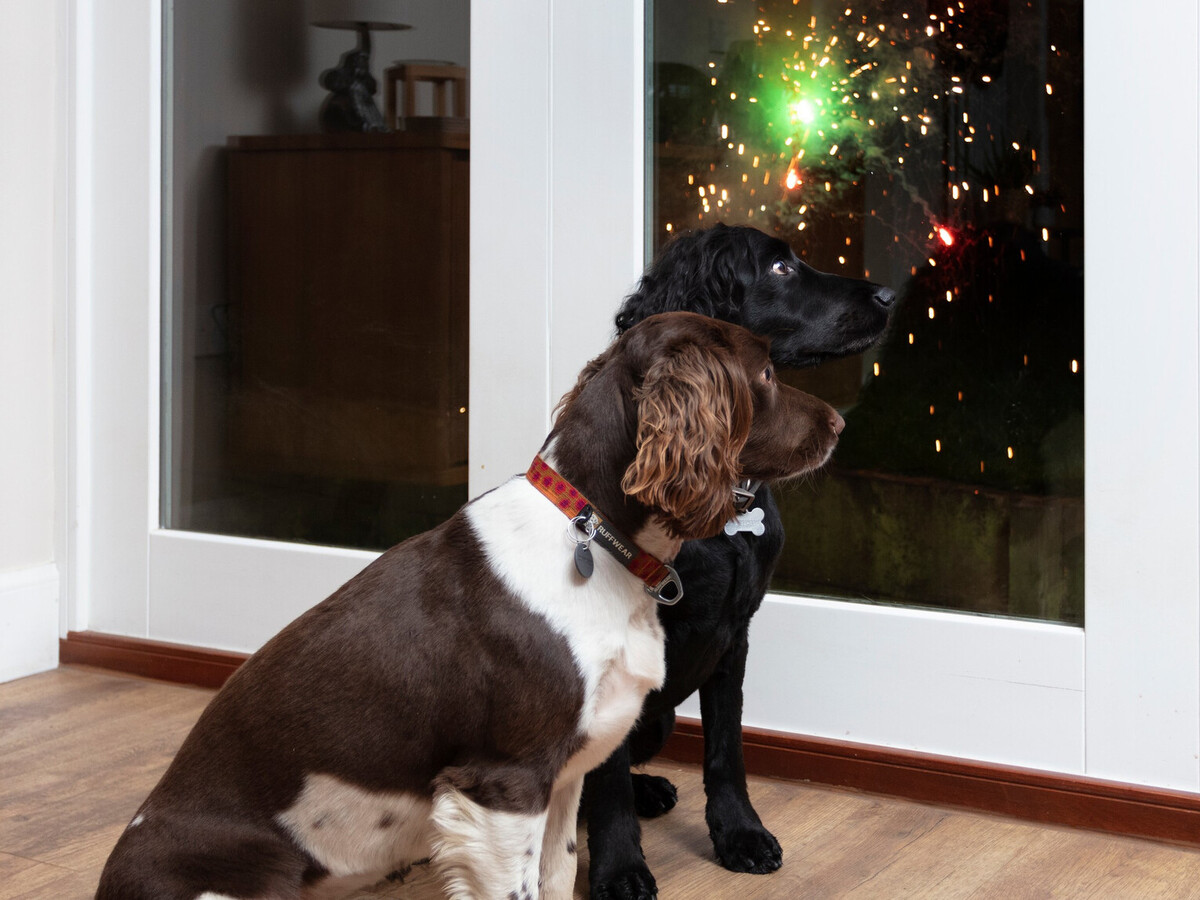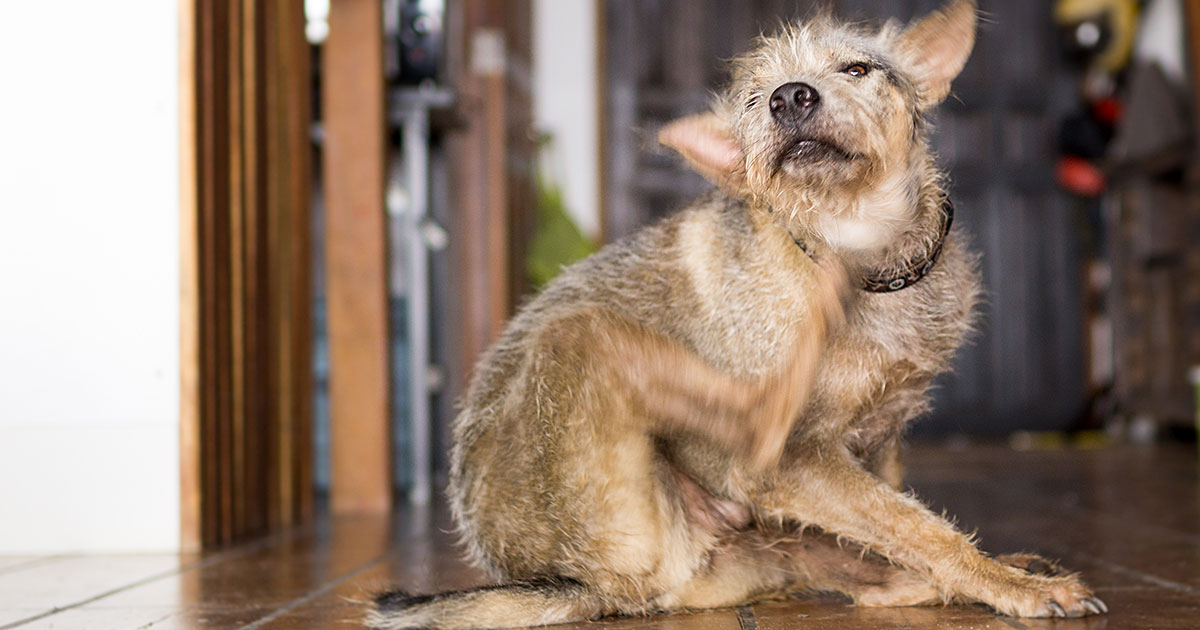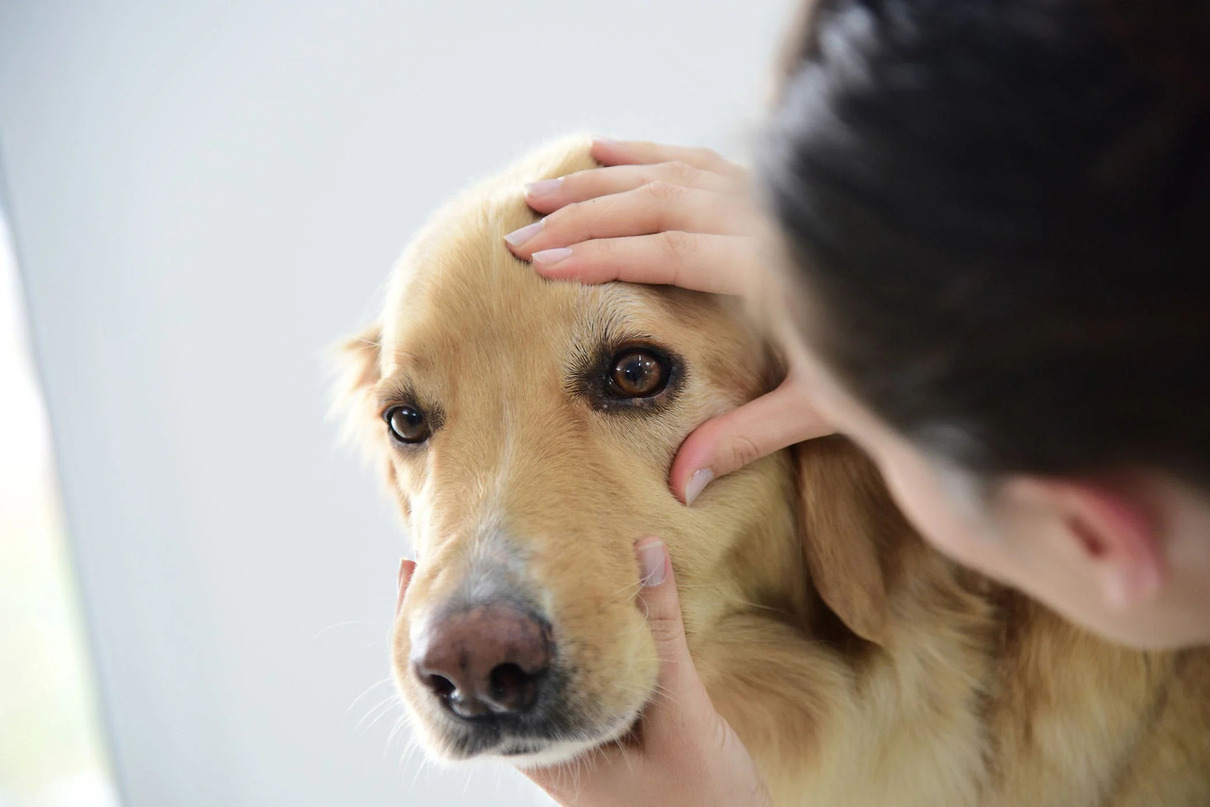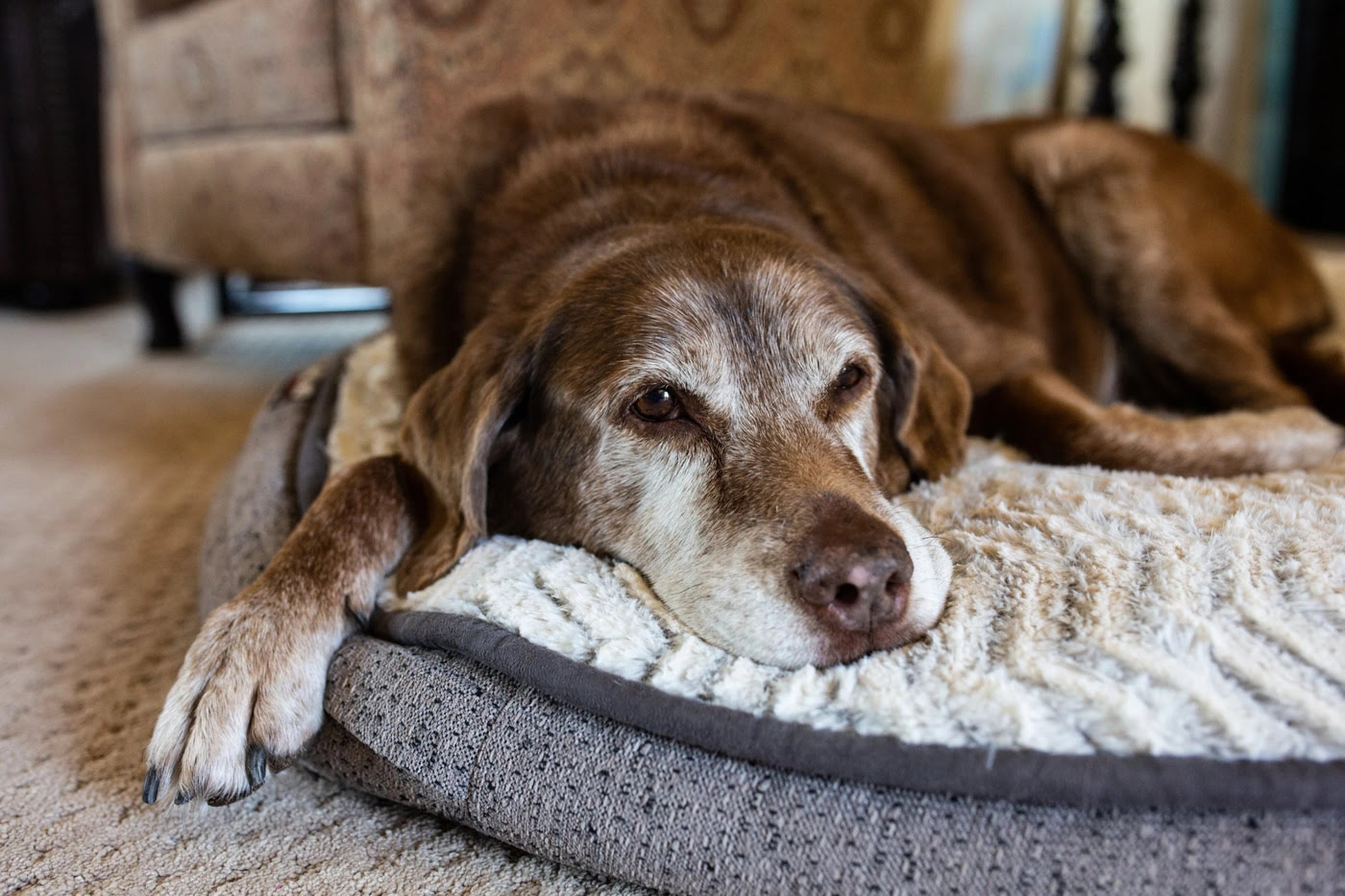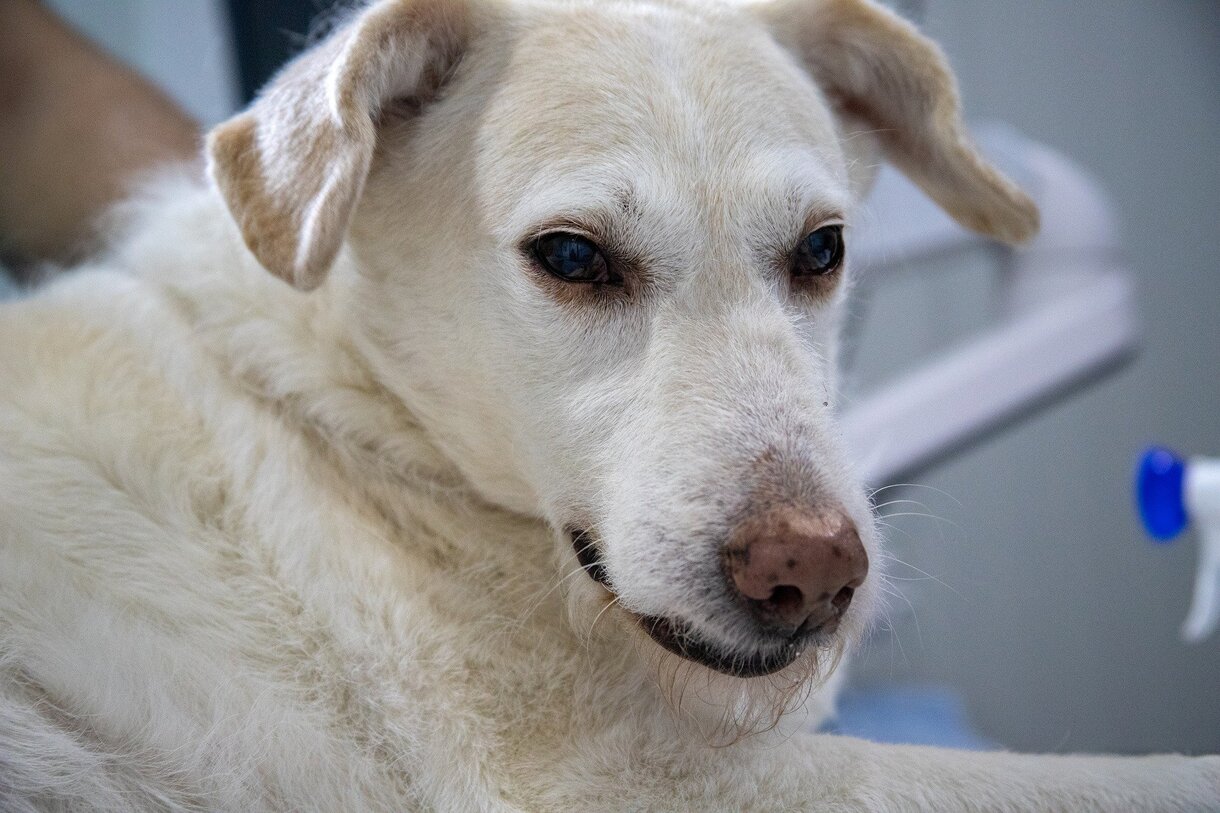Home>Health & Wellness>Behavior & Cognitive Care>How To Help Dogs With Anxiety At Night
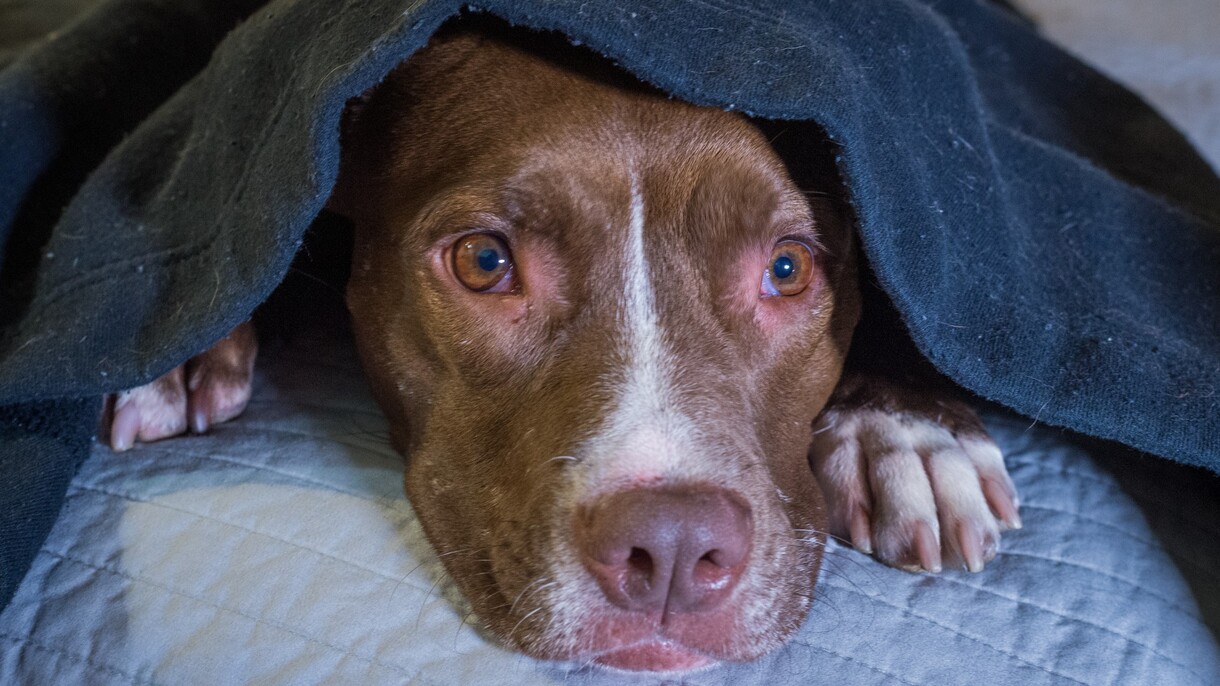

Behavior & Cognitive Care
How To Help Dogs With Anxiety At Night
Published: January 29, 2024
Discover effective ways to help dogs with anxiety at night through behavior and cognitive care techniques. Ease your pet's nighttime distress with these proven strategies.
(Many of the links in this article redirect to a specific reviewed product. Your purchase of these products through affiliate links helps to generate commission for Pawsomeoldies.com, at no extra cost. Learn more)
Table of Contents
Understanding Dog Anxiety at Night
Dogs, like humans, can experience anxiety, and it's essential to recognize the signs, especially at night when their anxiety may be more pronounced. Understanding the root causes of dog anxiety at night is crucial in providing the necessary support and comfort for our furry companions.
Read more: How To Help Aggressive Anxiety In Dogs
Signs of Anxiety
Anxiety in dogs can manifest in various ways, including pacing, restlessness, excessive panting, trembling, whining, or seeking excessive reassurance from their owners. Some dogs may also exhibit destructive behaviors, such as chewing on furniture or incessant barking. These signs can be particularly noticeable at night when the surroundings are quieter, and the absence of daytime distractions may amplify their anxiety.
Triggers of Nighttime Anxiety
Several factors can contribute to a dog's anxiety at night. Changes in routine, loud noises, separation from their owners, past traumatic experiences, or even physical discomfort due to illness or aging can all play a role in triggering nighttime anxiety. Additionally, dogs are highly attuned to their owners' emotions, and if their owners are stressed or anxious, dogs may mirror these emotions, leading to heightened anxiety at night.
Sensory Sensitivity
Dogs have heightened sensory perception, and this can contribute to their anxiety at night. Nocturnal sounds, such as distant sirens, rustling leaves, or unfamiliar noises, can be unsettling for dogs, causing them to feel on edge and anxious. Their acute hearing and sense of smell may also make them more susceptible to detecting subtle changes in their environment, further exacerbating their anxiety.
Comfort and Security
Creating a safe and secure sleeping environment for dogs is essential in addressing nighttime anxiety. Providing a comfortable and familiar sleeping area, such as a cozy bed or crate, can offer a sense of security for dogs. Additionally, ensuring that the sleeping space is free from disturbances and is located in a quiet area of the home can help alleviate their anxiety at night.
Understanding the nuances of dog anxiety at night empowers pet owners to take proactive measures to support their furry friends. By recognizing the signs, identifying triggers, and addressing sensory sensitivity, pet owners can play a pivotal role in helping their dogs feel more at ease during nighttime hours.
Read more: How Does A Therapy Dog Help With Anxiety
Creating a Comfortable Sleeping Environment
A comfortable sleeping environment is paramount in addressing a dog's anxiety at night. Just as humans seek a cozy and tranquil space for rest, dogs also benefit from a soothing sleeping area that promotes a sense of security and relaxation.
First and foremost, it's essential to provide a designated sleeping space for the dog, whether it's a plush bed, a soft blanket, or a familiar crate. This area should be located in a quiet and peaceful part of the home, away from potential disturbances such as loud appliances or external noises. By creating a designated sleeping spot, dogs can associate this space with rest and comfort, helping to alleviate nighttime anxiety.
The bedding itself plays a crucial role in ensuring a comfortable sleeping environment for dogs. Opting for a bed or blanket that offers ample cushioning and support can contribute to their physical comfort, especially for older dogs or those with joint issues. Additionally, choosing a material that retains warmth without overheating is important, as dogs, like humans, seek a cozy and temperature-regulated sleeping area.
Moreover, the sleeping environment should be free from potential stressors or triggers that may exacerbate anxiety. This includes minimizing exposure to bright lights, loud noises, or sudden disruptions during the night. Drawing curtains or using blackout shades can help create a dim and calming atmosphere, signaling to the dog that it's time to unwind and rest.
In some cases, dogs may find comfort in having familiar items nearby, such as a favorite toy or a piece of clothing with their owner's scent. These items can provide a sense of familiarity and reassurance, further contributing to a comfortable sleeping environment.
Lastly, maintaining a consistent bedtime routine can significantly impact a dog's comfort at night. Establishing a regular schedule for feeding, playtime, and bedtime can help dogs anticipate and prepare for rest, reducing the likelihood of nighttime anxiety.
By prioritizing the creation of a comfortable sleeping environment, pet owners can actively contribute to their dog's well-being and help alleviate anxiety at night. This approach not only fosters a sense of security and relaxation for the dog but also strengthens the bond between the pet and their owner, nurturing a harmonious and supportive living environment.
Providing Calming Activities Before Bed
Engaging in calming activities before bedtime can significantly aid in alleviating a dog's anxiety and promoting a sense of relaxation and tranquility. Just as humans benefit from winding down before sleep, dogs also thrive when offered soothing and calming experiences in the lead-up to bedtime.
One effective calming activity is gentle exercise, such as a leisurely walk or a brief play session. This physical activity helps dogs release any pent-up energy, promoting a sense of calmness as bedtime approaches. Additionally, the outdoor environment can provide mental stimulation, allowing dogs to unwind and prepare for rest.
Another beneficial activity is interactive play that incorporates mental stimulation. Engaging in activities such as puzzle toys, treat-dispensing games, or simple training exercises not only provides mental enrichment but also encourages focus and relaxation. Mental stimulation can be particularly effective in redirecting a dog's attention away from potential sources of anxiety, allowing them to transition into a more peaceful state before bedtime.
Furthermore, incorporating massage or gentle grooming into the pre-bedtime routine can be remarkably calming for dogs. A soothing massage or a gentle brushing session not only promotes physical relaxation but also fosters a sense of bonding and security between the dog and their owner. The repetitive and comforting motions of grooming can help lower a dog's stress levels and induce a state of calm readiness for sleep.
Additionally, the use of calming scents, such as lavender or chamomile, can have a tranquilizing effect on dogs. Aromatherapy products designed specifically for pets, such as calming sprays or diffusers, can help create a serene atmosphere conducive to relaxation. The gentle diffusion of calming scents in the sleeping area can signal to the dog that it's time to unwind, promoting a peaceful transition into bedtime.
Incorporating soothing music or white noise can also contribute to a calming pre-sleep routine for dogs. Playing soft, calming melodies or utilizing white noise machines can help drown out disruptive sounds and create a soothing auditory environment. This can be particularly beneficial for dogs sensitive to external noises, helping them feel more secure and at ease as they prepare for sleep.
By integrating these calming activities into a dog's pre-bedtime routine, pet owners can actively contribute to their pet's well-being and comfort. These activities not only aid in reducing anxiety but also foster a sense of relaxation and security, ultimately promoting a restful and peaceful night's sleep for our beloved canine companions.
Using Natural Remedies and Supplements
In addressing a dog's anxiety at night, natural remedies and supplements can serve as valuable tools in promoting a sense of calm and relaxation. These holistic approaches offer gentle yet effective means of supporting a dog's emotional well-being, complementing a comprehensive strategy to alleviate nighttime anxiety.
One widely recognized natural remedy for anxiety in dogs is chamomile. Known for its soothing properties, chamomile can be administered to dogs in various forms, including herbal teas, tinctures, or specially formulated chamomile supplements. The gentle sedative effects of chamomile can help ease a dog's nervousness and promote a tranquil state, making it particularly beneficial in reducing nighttime anxiety.
Similarly, lavender, with its gentle and aromatic qualities, is renowned for its calming effects on both humans and dogs. Lavender essential oil, when properly diluted and diffused in the sleeping area, can create a serene and relaxing atmosphere. The subtle scent of lavender can help alleviate a dog's anxiety, promoting a sense of peace and comfort as they prepare for sleep.
Furthermore, supplements containing natural ingredients such as valerian root or passionflower can offer gentle yet effective support for dogs experiencing anxiety at night. These botanical extracts are known for their calming properties and can be found in various forms, including tinctures, chews, or powders. When used as part of a holistic approach to managing nighttime anxiety, these supplements can contribute to a dog's overall relaxation and emotional well-being.
Additionally, incorporating dietary changes and nutritional supplements can play a significant role in addressing a dog's anxiety. Omega-3 fatty acids, commonly found in fish oil supplements, have been shown to support cognitive function and emotional balance in dogs. By promoting brain health and emotional resilience, omega-3 fatty acids can aid in mitigating anxiety symptoms, contributing to a more serene nighttime experience for dogs.
It's important to note that when considering natural remedies and supplements for a dog's anxiety, consulting with a veterinarian is crucial. A professional assessment can help determine the most suitable and safe options for the individual dog, considering factors such as their health status, existing medications, and specific anxiety triggers. Additionally, a veterinarian can provide guidance on appropriate dosages and administration methods, ensuring the optimal and safe use of natural remedies and supplements.
By integrating natural remedies and supplements into a holistic approach to managing a dog's anxiety at night, pet owners can provide gentle yet effective support for their beloved companions. These natural approaches not only contribute to a dog's emotional well-being but also align with a compassionate and nurturing approach to addressing nighttime anxiety, fostering a harmonious and tranquil environment for both the dog and their owner.
Seeking Professional Help and Support
Seeking professional assistance is paramount when addressing a dog's anxiety at night, especially when the symptoms persist or significantly impact the dog's well-being. Professional support can provide valuable insights, personalized guidance, and specialized interventions to effectively manage and alleviate nighttime anxiety in dogs.
A crucial first step in seeking professional help is consulting a qualified veterinarian. Veterinarians possess the expertise to assess a dog's overall health and well-being, enabling them to identify any underlying medical conditions that may contribute to anxiety. Through a comprehensive examination, including a review of the dog's medical history and behavior patterns, veterinarians can offer a thorough assessment of the underlying factors influencing the dog's nighttime anxiety.
In some cases, veterinarians may recommend behavior modification techniques tailored to address the specific triggers and manifestations of a dog's nighttime anxiety. These techniques may include desensitization exercises, counterconditioning strategies, or structured training protocols designed to help the dog develop coping mechanisms and reduce anxiety-related behaviors.
Additionally, veterinary behaviorists or certified dog behavior consultants can offer specialized expertise in addressing complex anxiety issues in dogs. These professionals possess advanced training in animal behavior and psychology, allowing them to develop individualized behavior modification plans and therapeutic interventions to address nighttime anxiety. By collaborating with these specialists, pet owners can gain access to targeted strategies and support systems tailored to their dog's unique needs.
Furthermore, in cases where a dog's nighttime anxiety is severe or significantly impacts their quality of life, veterinarians may recommend the use of prescription medications or pheromone therapies. These interventions can help manage acute anxiety symptoms and provide the dog with a greater sense of calm and comfort during nighttime hours. It's essential for pet owners to follow the veterinarian's guidance closely when utilizing these interventions, ensuring the safe and appropriate use of medications or pheromone-based treatments.
Moreover, professional support extends to the realm of holistic and integrative veterinary care, where alternative therapies such as acupuncture, massage, or herbal medicine may be considered as part of a comprehensive approach to managing a dog's nighttime anxiety. These complementary modalities can offer additional avenues for promoting relaxation and emotional balance in dogs, complementing traditional veterinary interventions to support the dog's overall well-being.
By seeking professional help and support, pet owners can access a wealth of resources and expertise to address their dog's nighttime anxiety comprehensively. Through collaboration with veterinarians, behavior specialists, and holistic care providers, pet owners can navigate the complexities of nighttime anxiety with confidence, compassion, and a commitment to promoting their dog's emotional wellness and comfort.
